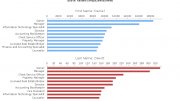
The study of criminal psychology includes training in sociology, criminal justice and mental health analysis. Students interested in pursuing a major in criminal psychology can enroll in a Bachelor of Arts or Bachelor of Science in Forensic Psychology program. The major difference between the two is the Bachelor of Science's requirement of more psychology-centered courses.
Forensic psychology majors may learn skills in criminal profiling, individual assessment and counseling. Many programs require that students complete an internship or work experience with a law enforcement agency.
There are typically no special admission requirements for application to a criminal psychology major. However, some colleges may require students to take introductory courses in statistics and psychology before being able to take core forensic psychology classes.
- Program Levels in Criminal Psychology: Bachelor's degrees, master's degrees
- Prerequisites: Coursework in introductory psychology and statistics
- Completion Requirements: Internship experience with law enforcement
Bachelor's Degrees in Criminal Psychology
Bachelor's of Arts degrees in Criminal Psychology courses are more focused on the criminal justice system while Bachelor's of Science degrees offer more psychology- focused programs.
Criminal psychology majors are often required to participate in a professional work experience.
Throughout the program, students take classes such as:
- Mental health tests and measurements
- Abnormal psychology
- Laws affecting criminals
- Judicial criminal proceedings
- Studies in victimization
- Research methods in criminal psychology
Source: study.com
You might also like:















